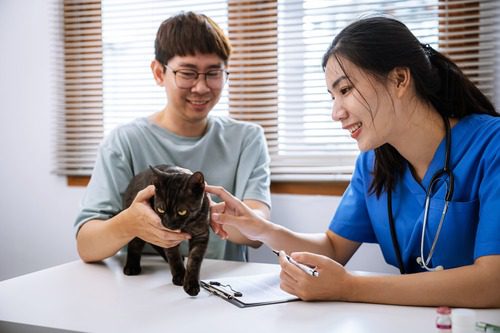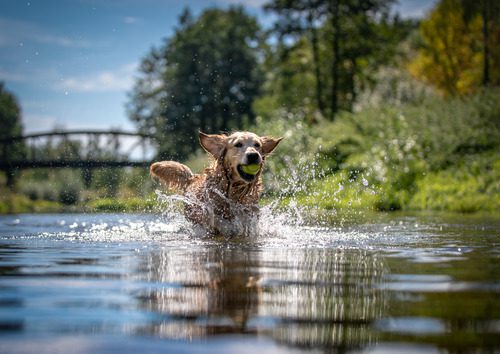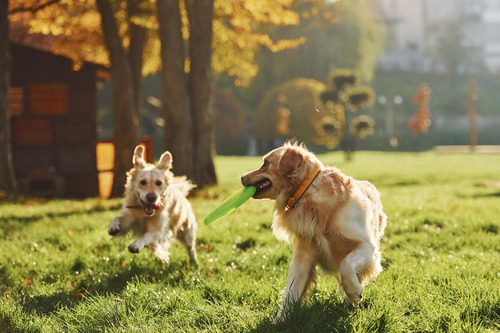Preparing Your Pet for the Vet
Taking your pet to the veterinarian can be a stress-filled experience for both you and your beloved companion. Proper preparation can significantly ease this stress, ensuring that both you and your pet have a smooth and efficient visit. This blog will explore practical tips and strategies for preparing your pet for the vet, making the experience as comfortable as possible. Whether it’s a routine check-up or a specific treatment, being well-prepared can make a big difference in the quality of the visit. Remember, if you have any specific concerns or need immediate assistance, call Cornerstone Veterinary Hospital of Clifton Park at (518) 383-6254.

Before the Veterinary Visit
Before heading to the vet, it’s essential to understand your pet’s specific needs. This includes being aware of their temperament, any existing health concerns, and their previous experiences with veterinary visits. Knowing these details can help you better prepare for potential challenges and discuss them effectively with your veterinarian.
Scheduling the Appointment
Choosing the right time for your visit can contribute significantly to its success. Aim for a time when the clinic is less crowded to minimize stress for your pet. Early morning or late afternoon appointments are often less hectic. Also, scheduling your appointment well in advance can ensure you get a time that works best for you and allows you ample preparation.
On the Day of the Visit
Creating a Calm Environment
On the day of the appointment, create a calm environment at home before heading to the vet. This might involve playing soft music, providing a favorite toy, or engaging in gentle play. A relaxed pet is easier to manage and less likely to feel anxious during the journey and the wait at the clinic.
Transportation
Safe and comfortable transportation is crucial when preparing your pet for the vet. Use a well-ventilated carrier for smaller pets and ensure it’s secure in the vehicle. For larger dogs, a safety harness that attaches to the seat belt is advisable. Familiarizing your pet with the carrier or vehicle ahead of time by taking short drives can also help reduce stress on the day of the visit.
At the Veterinary Clinic
Handling the Waiting Room
The waiting room can be a challenging environment for pets due to unfamiliar sounds, smells, and other animals. Keep your pet close to you and distracted with treats or toys. Avoid interactions with other animals to reduce stress and potential conflicts.
Communicating with Your Vet
Effective communication with your vet is vital. Be clear about any symptoms your pet has been experiencing and any behavior changes you’ve noticed. This information is crucial for your vet to provide the best care possible. Don’t hesitate to ask questions to fully understand your pet’s health and any recommended procedures.
After the Visit
Post-Visit Care and Monitoring
After the visit, monitor your pet for any changes in behavior or signs of stress. Provide a quiet, comfortable space for them to rest. Follow any instructions given by your vet, especially if new medications were prescribed or if follow-up appointments are necessary.
Encouraging Positive Associations
Reward your pet with treats, affection, and playtime after returning home to create a positive association with vet visits. This can make future trips less stressful for both of you.
Ensuring Your Pet is Ready for Their Appointment
Preparing your pet for the veterinarian is an essential part of pet ownership that contributes to their health and well-being. By following these steps, you can ensure that your pet’s visit to Cornerstone Veterinary Hospital of Clifton Park is as stress-free as possible. If you have any questions or need to schedule an appointment, call us at (518) 383-6254. Together, we can ensure your pet receives the best care in a supportive environment.
Recent Posts
Blue Green Algae in Dogs: Everything You Need to Know
Blue Green Algae in Dogs: Everything You Need to Know Warm weather, lakeside strolls, and outdoor play…
Is Giardia Contagious in Dogs?
Is Giardia Contagious in Dogs? Giardia is one of those health concerns that can catch dog owners…
Why Does My Dog Chatter Its Teeth?
Why Does My Dog Chatter Its Teeth? If your dog has ever started chattering its teeth unexpectedly,…
About Us
Originally opened as Animal Care Hospital by Dr. Mark Johnston in 1989, the hospital became Cornerstone Veterinary Hospital in 2015 when it was purchased by Drs. Alan and Lisa Knott. The name 'Cornerstone' holds a special place in their hearts, representing not only their Christian faith but also their commitment to being the cornerstone of the community in which they practice. As a family-owned and operated practice, every pet is treated as part of the family, ensuring they receive the highest standard of care. The team at Cornerstone Veterinary Hospital is dedicated to building lasting relationships with clients and their beloved pets, striving to be the cornerstone of the community in which they practice.



